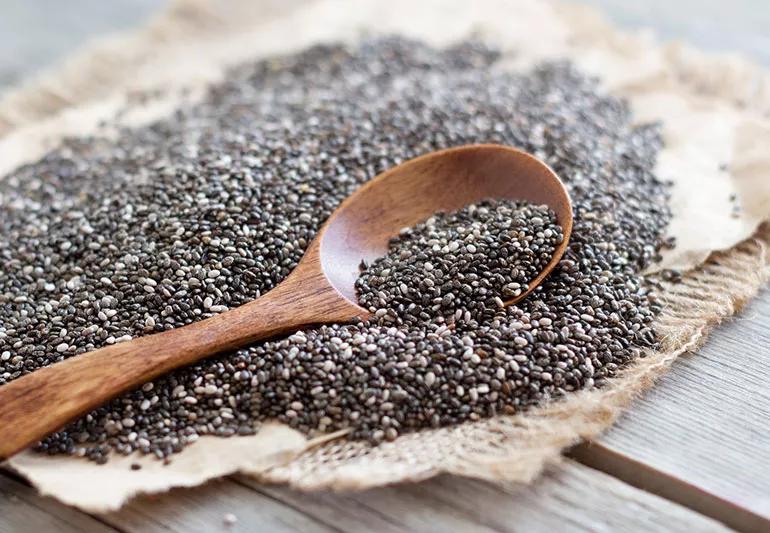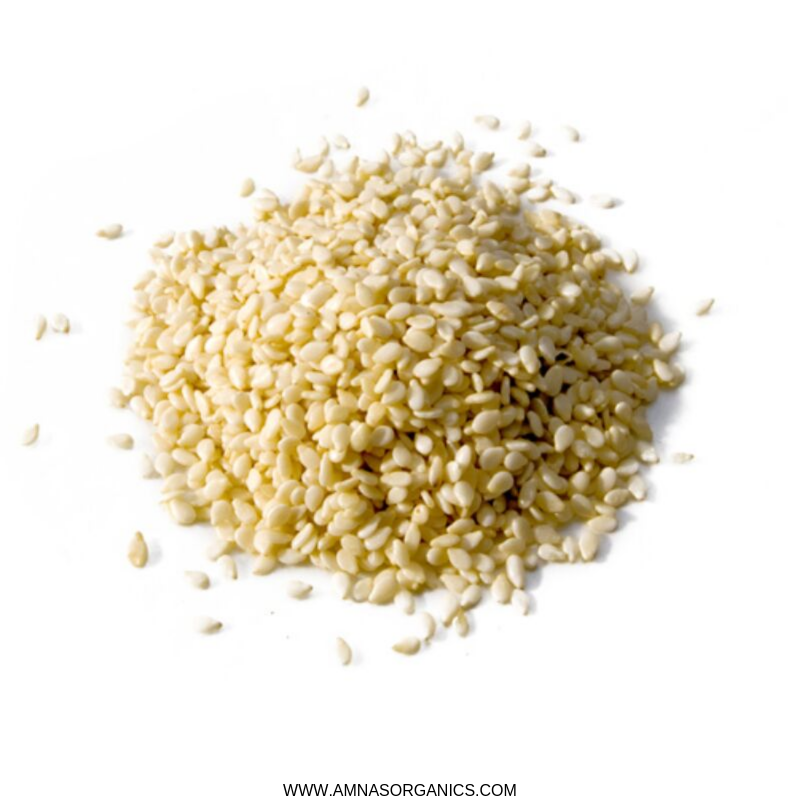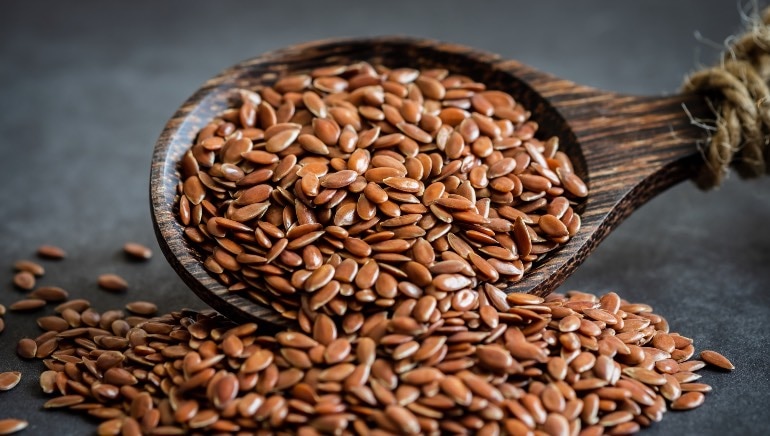“Learn about 9 iron-rich seeds that can naturally increase your iron levels. This guide highlights their health benefits and offers tips for adding them to your diet for better iron intake and overall wellness.”
Introduction
Iron is a vital mineral that plays an essential role in maintaining overall health. It is crucial for producing hemoglobin, the protein in red blood cells that transports oxygen throughout the body. Adequate iron levels are necessary for energy production, cognitive function, and a healthy immune system. Iron deficiency can lead to fatigue, weakened immune function, and other health issues. Incorporating iron-rich foods into your diet is a natural way to address these concerns. Seeds, in particular, are a fantastic source of iron and other beneficial nutrients. This guide explores nine powerful seeds that can help boost your iron levels and improve your overall well-being.
1. Chia Seeds
Nutritional Profile: Chia seeds are a nutrient-dense food that provides an array of health benefits. They are rich in iron, with about 2.2 milligrams of iron per two tablespoons. In addition to iron, chia seeds are high in fiber, omega-3 fatty acids, and antioxidants. They also contain a variety of vitamins and minerals, including calcium, magnesium, and phosphorus.
Health Benefits:
- Iron Boost: Chia seeds are an excellent source of plant-based iron, which can help increase your iron levels and combat iron deficiency.
- Digestive Health: The high fiber content in chia seeds promotes healthy digestion and regular bowel movements, which can aid in overall health and nutrient absorption.
- Heart Health: Omega-3 fatty acids in chia seeds contribute to cardiovascular health by reducing inflammation and lowering blood pressure.
How to Incorporate: Chia seeds are incredibly versatile. You can add them to smoothies, yogurt, oatmeal, or salads. They can also be used to make chia pudding or as an egg substitute in baking. Their mild flavor and gel-like texture when soaked make them easy to incorporate into various dishes.

2. Pumpkin Seeds
Nutritional Profile: Pumpkin seeds, also known as pepitas, are a powerhouse of nutrients. They provide approximately 2.5 milligrams of iron per ounce. In addition to iron, pumpkin seeds are rich in magnesium, zinc, and antioxidants. They also offer a good amount of protein and healthy fats.
Health Benefits:
- Iron Content: The iron in pumpkin seeds is highly bioavailable, meaning it is readily absorbed by the body, making them an effective way to boost iron levels.
- Bone Health: Pumpkin seeds are a good source of magnesium, which is essential for bone health and the prevention of osteoporosis.
- Prostate Health: The zinc in pumpkin seeds supports prostate health and may help reduce the risk of prostate issues.
How to Incorporate: Pumpkin seeds can be eaten raw, roasted, or added to various dishes. Sprinkle them on salads, soups, or yogurt. They also make a great snack on their own or can be mixed into trail mixes. Roasting them with your favorite spices can add flavor and crunch.
3. Sesame Seeds
Nutritional Profile: Sesame seeds are another excellent source of iron, providing around 1.3 milligrams per tablespoon. They are also rich in calcium, magnesium, and healthy fats. Sesame seeds contain lignans, which have antioxidant properties and may contribute to heart health.
Health Benefits:
- Iron Supply: Sesame seeds contribute to your daily iron needs, which is crucial for preventing anemia and maintaining energy levels.
- Bone Health: High calcium content supports bone health and can aid in the prevention of osteoporosis.
- Heart Health: The healthy fats in sesame seeds, along with their antioxidant properties, promote cardiovascular health.
How to Incorporate: Sesame seeds can be sprinkled on salads, stir-fries, or grain dishes. They can also be used to make tahini, a sesame paste that is a great addition to sauces and dressings. Adding sesame seeds to baked goods like bread or cookies can also boost their nutritional value.

4. Sunflower Seeds
Nutritional Profile: Sunflower seeds are rich in iron, providing about 1.4 milligrams per ounce. They are also high in vitamin E, magnesium, and selenium. Sunflower seeds contain healthy fats and are a good source of protein.
Health Benefits:
- Iron Boost: Sunflower seeds are a tasty way to increase your iron intake and support overall health.
- Antioxidant Protection: Vitamin E and selenium in sunflower seeds help protect cells from oxidative damage and support immune function.
- Heart Health: The healthy fats in sunflower seeds can help improve cholesterol levels and support cardiovascular health.
How to Incorporate: Sunflower seeds can be eaten raw or roasted. They are great as a snack or can be added to salads, trail mixes, or granola bars. You can also blend them into smoothies or sprinkle them on top of yogurt or oatmeal for added crunch.
5. Flaxseeds
Nutritional Profile: Flaxseeds are a rich source of iron, providing around 0.6 milligrams per tablespoon. They are also packed with omega-3 fatty acids, fiber, and antioxidants. Flaxseeds contain lignans, which have potential health benefits including hormone balance and cardiovascular health.
Health Benefits:
- Iron Source: Flaxseeds contribute to iron intake, which is essential for preventing anemia and supporting overall health.
- Digestive Health: The high fiber content in flaxseeds promotes digestive health and regular bowel movements.
- Heart Health: Omega-3 fatty acids in flaxseeds help reduce inflammation and support cardiovascular health.
How to Incorporate: Flaxseeds can be ground and added to smoothies, oatmeal, or baked goods. They can also be used as an egg substitute in vegan recipes. Ground flaxseeds are easier to digest and absorb compared to whole flaxseeds.

6. Hemp Seeds
Nutritional Profile: Hemp seeds are a nutrient-dense food, providing around 2.5 milligrams of iron per ounce. They are also a complete source of protein and contain essential fatty acids like omega-3 and omega-6. Hemp seeds are rich in magnesium, zinc, and other vital nutrients.
Health Benefits:
- Iron Content: Hemp seeds are an excellent source of iron, which supports red blood cell production and overall health.
- Complete Protein: They provide all essential amino acids, making them a valuable addition to plant-based diets.
- Skin Health: The fatty acids in hemp seeds support healthy skin and may help with conditions like eczema.
How to Incorporate: Hemp seeds can be sprinkled on salads, yogurt, or blended into smoothies. They can also be added to baked goods or used to make hemp seed butter. Their mild, nutty flavor makes them versatile for various recipes.
7. Quinoa Seeds
Nutritional Profile: Quinoa, while technically a seed, is often consumed like a grain. It provides about 2.8 milligrams of iron per cup of cooked quinoa. Quinoa is also a complete protein and contains all nine essential amino acids. It is rich in fiber, magnesium, and other important nutrients.
Health Benefits:
- Iron Boost: Quinoa offers a substantial amount of iron, which can help boost your levels and support overall health.
- Complete Protein: As a complete protein, quinoa provides all essential amino acids, making it a great choice for vegetarians and vegans.
- Digestive Health: The fiber content in quinoa supports healthy digestion and regular bowel movements.
How to Incorporate: Quinoa can be used as a base for salads, grain bowls, or as a side dish. It can also be added to soups or stews for added protein and nutrients. Quinoa can be used in place of rice or other grains in various recipes.

8. Amaranth Seeds
Nutritional Profile: Amaranth seeds are highly nutritious, providing about 5.2 milligrams of iron per cup when cooked. They are also a complete protein and contain a variety of essential amino acids. Amaranth is rich in fiber, calcium, and other important nutrients.
Health Benefits:
- High Iron Content: Amaranth seeds are an excellent source of iron, making them a great addition to your diet to boost iron levels.
- Complete Protein: Amaranth provides all essential amino acids, making it a valuable source of protein.
- Bone Health: The high calcium content supports bone health and can aid in the prevention of osteoporosis.
How to Incorporate: Amaranth seeds can be used in soups, stews, or as a side dish. They can also be cooked and used as a base for salads or grain bowls. Amaranth flour can be used in baking to increase the nutritional content of bread and other baked goods.
9. Fenugreek Seeds
Nutritional Profile: Fenugreek seeds are used in cooking and traditional medicine. They provide about 3.7 milligrams of iron per ounce. Fenugreek seeds are also rich in fiber, protein, and various vitamins and minerals.
Health Benefits:
- Iron Content: Fenugreek seeds provide a significant amount of iron, which can help improve your iron levels and support overall health.
- Digestive Health: The high fiber content in fenugreek seeds supports digestive health and may help with issues like constipation.
- Blood Sugar Control: Fenugreek seeds have been shown to help regulate blood sugar levels, making them beneficial for those with diabetes.
How to Incorporate: Fenugreek seeds can be used in cooking, especially in Indian and Middle Eastern cuisine. They can be added to curries, stews, or used as a spice in various dishes. Fenugreek seeds can also be taken as a supplement for their health benefits.

Conclusion
Incorporating these nine iron-rich seeds into your diet is a delicious and effective way to boost your iron levels naturally. Each of these seeds offers a unique set of nutrients and health benefits, making them valuable additions to your diet. Whether you enjoy them as snacks, add them to meals, or use them in various recipes, these seeds provide a wealth of health benefits beyond just iron. By making these nutrient-dense seeds a regular part of your diet, you can enhance your iron intake and support overall wellness.
